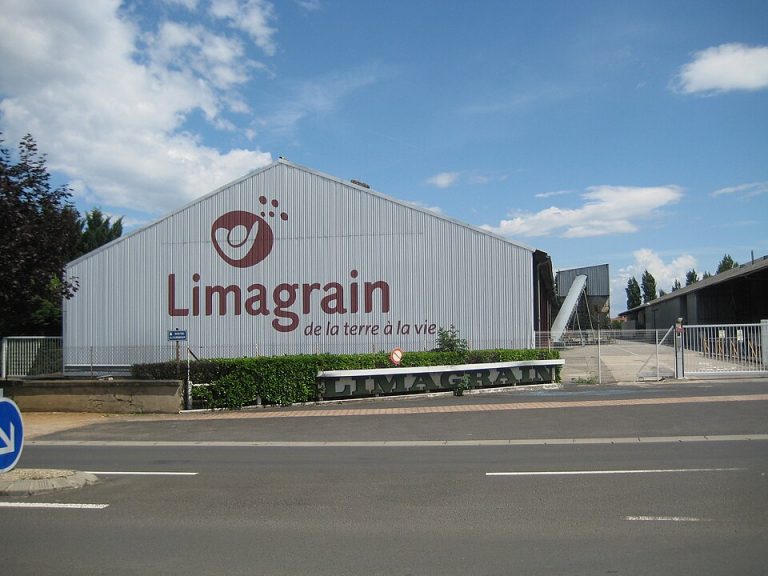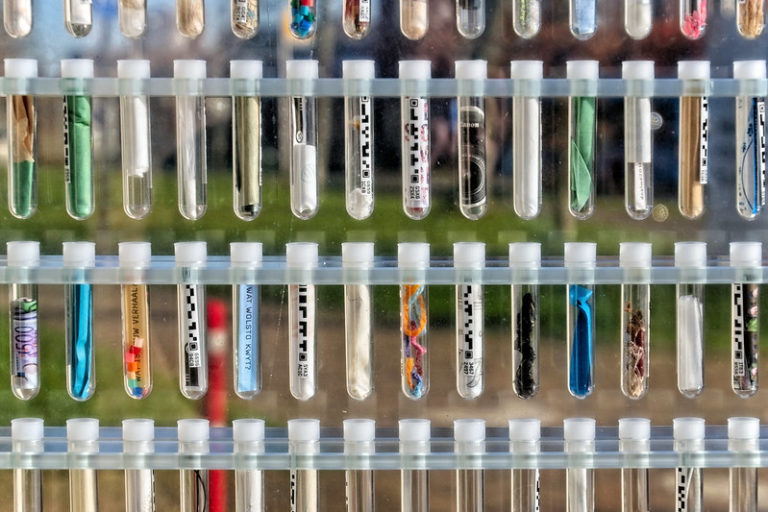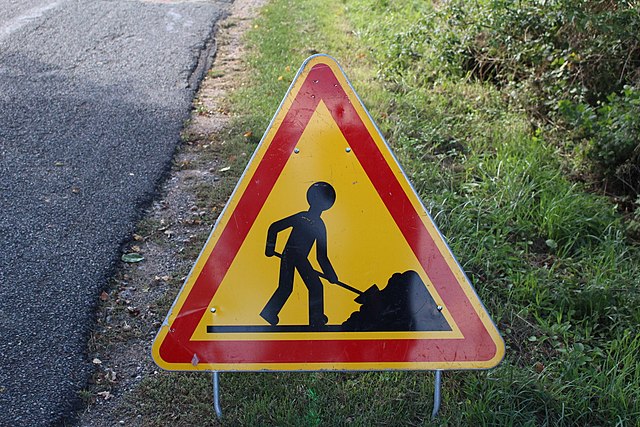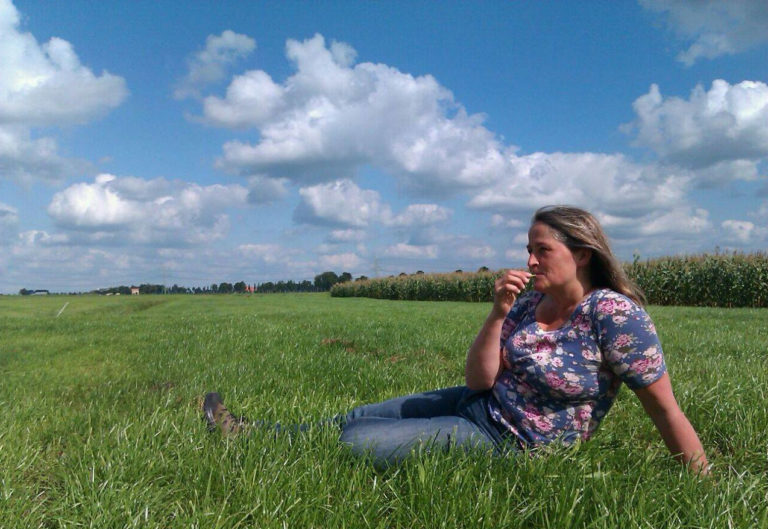News
French organisations concerned about GMO deregulation
As the trialogue on the proposed deregulation of GMOs got underway on 6 May between the European Commission, the European Parliament and the Council of Member States of the European Union, French organisations are once again warning of the potential “serious and irreversible consequences of this text“.
Alternatiba Rennes, one of the signatories of this letter, has also taken action in the public arena.
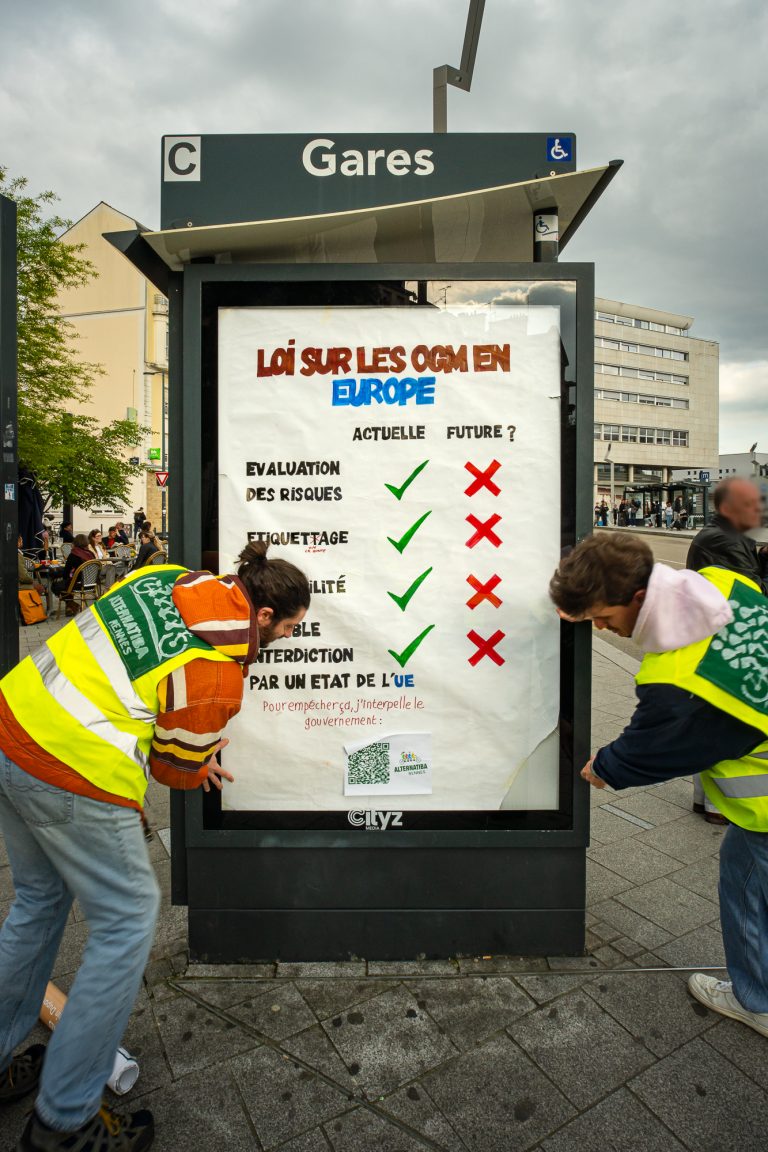
On 5 May, on the eve of the start of the trialogue that will discuss a proposal to deregulate a number of GMOs, with the aim of exempting them from the rules currently in force in the EU, around twenty organisationsi published a collective opinion piece in the columns of Politisii. Pointing out that they had already alerted the French government and the European institutions on numerous occasions, they felt that their “questions and concerns have so far received no satisfactory response“. Concentration of the seed market as a result of patents, loss of food sovereignty, lack of risk assessment, disappearance of the right to information and freedom of choice for citizens, the right to produce without GMOs, endangerment of non-GMO and organic sectors… these are just some of the notable impacts listed by the signatory organisations.
Patents as a central issue
Most of the organisations behind this French tribune were also signatories of the European declaration of February 11iii, which brought together more than 200 NGOs, trade unions and associations. As they did 3 months ago, the signatories point out that while the European institutions are rushing to reach a final text, “the thorny issue of patents is a central point in the negotiations, and no adequate response has been provided“.
In their arguments, the organisations stress that “in the absence of any obligation to publish methods for detecting and identifying these new patented GMOs […], they will contaminate the agri-food sector and expose it to major risks:
- The impact on the integrity of the GM-free and organic sectors, which will no longer be able to guarantee the absence of GMOs;
- Extending the scope of patents to farmers’ or conventional seeds contaminated by a gene patented by an NTG process or naturally containing a gene wrongly declared to be similar to this patented gene;
- Legal uncertainty for farmers, breeders, processors and distributors, who will have no way of knowing whether they have used or marketed patented genes, which could lead to legal proceedings and threaten the continuation of their business;
- The loss of diversity in the food on offer to the public, and the end of their freedom of choice due to the absence of labelling;
- The reduction in cultivated biodiversity and the ecological imbalances linked to the uncontrolled dissemination of these “new” GMOs in the environment;
- The loss of food sovereignty by strengthening the already suffocating grip of multinationals on our agri-food systems“.
Deconstructing the false promises of the “new GMOs“.
Far from believing the promising announcements made by the promoters of the “new GMOs“, the signatories reject out of hand the “sustainability” argument put forward by the seed multinationals. The first reason for this is an agronomic reality: “no plant can be sustainable in its own right. Only a farming system as a whole can offer a degree of sustainability, based on a variety of factors over which genetic manipulation has no control: farming practices, local climatic conditions, soil quality, presence of pollinators, biodiversity, etc.“.
Secondly, taking into account “30 years’ hindsight on the industry’s false promises concerning the first GMOs“, the signatories state that the vast majority were developed to resist herbicides or produce insecticides. If the few varieties already developed and cultivated in the Americas are anything to go by, the “new GMOs” are pursuing the same rationale of a headlong rush towards industrial agriculture using chemical inputs and biotechnologies. For the group publishing the article, “this is proof that they are not sustainable“.
In view of the risks mentioned, which are currently being ignored, the signatory organisations are therefore asking “the European institutions to maintain the measures that are essential to protect farmers, sectors, citizens and the environment: prior risk assessment, traceability and labelling up to the consumer, obligation to publish detection and identification methods, safeguard clause, post-marketing monitoring“.
Alternatiba also mobilises in the public space
The Alternatiba collective, which signed the above-mentioned petition, also took to the streets of Rennes. On Friday 25 April, members of the organisation carried out “an action of civil disobedience by taking over advertising hoardings in the city centre to warn the general public about the possible future deregulation of GMO plants“iv. But the aim was “also to have communication material to send to the media“, which Alternatiba finds “very discreet on the subject“.
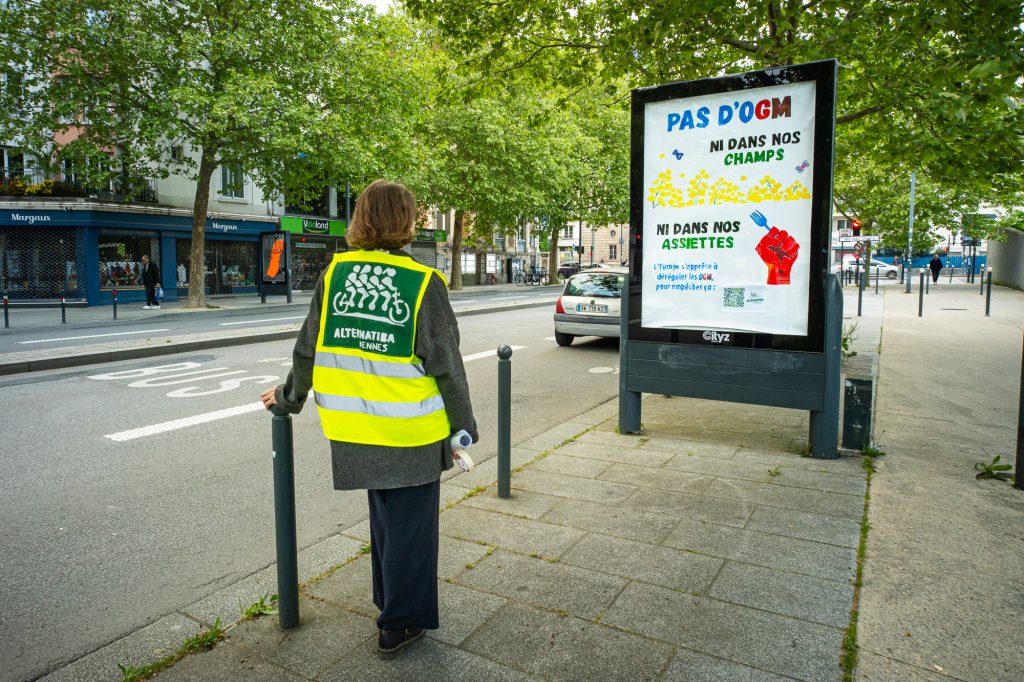


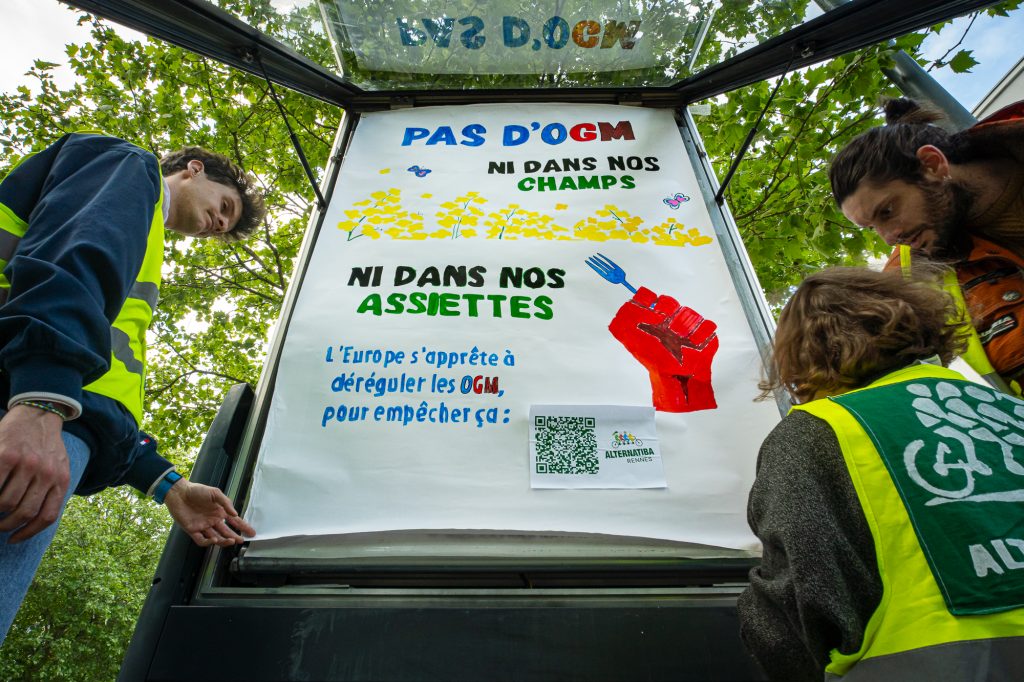
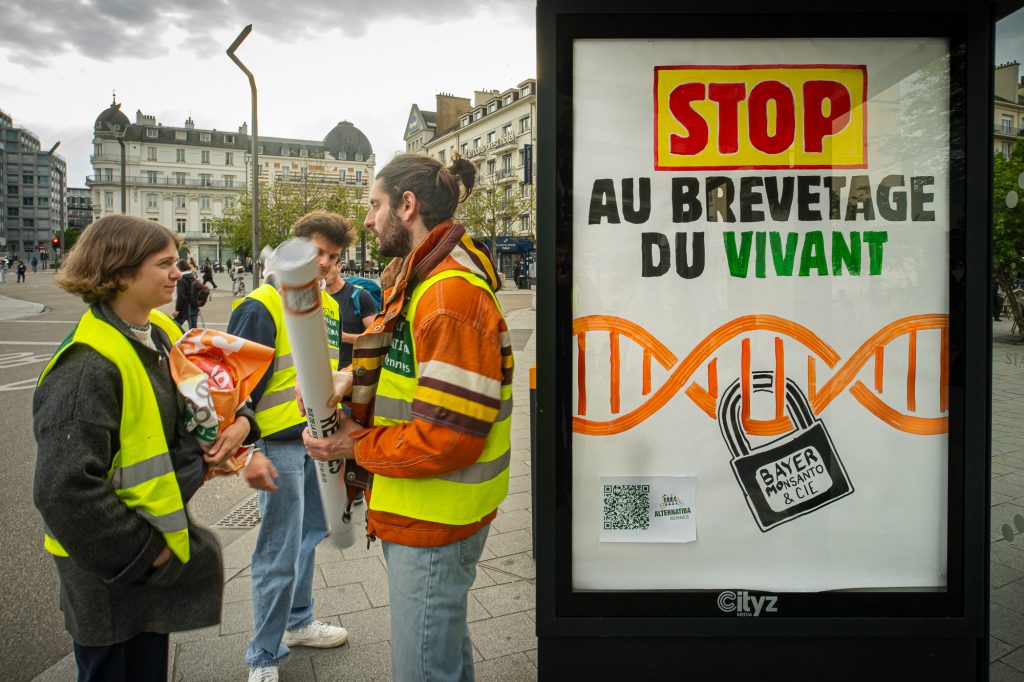
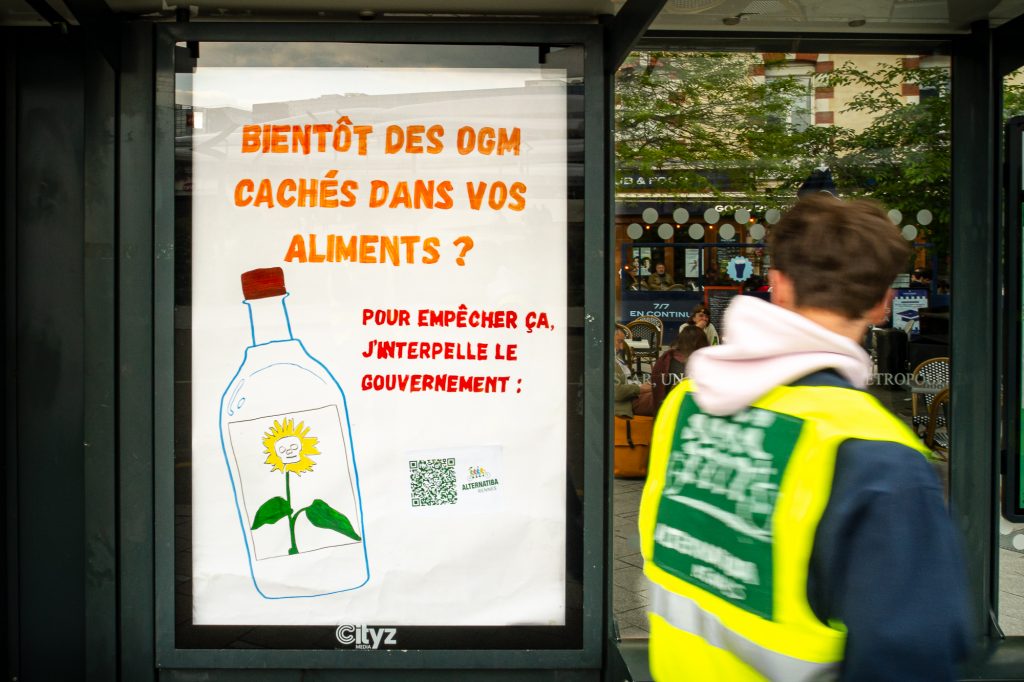
In its press release, Alternatiba begins by paying tribute to the activists who “fought” to obtain “the world’s strictest regulations on GMOs (Directive 2001/18/EC)” and whose legacy is under threat following “the adoption of the European Commission’s draft regulation of 5 July 2023 on the deregulation of New Genomic Techniques (NGTs)“, which has been under negotiation in the trialogue since 6 May. For Alternatiba, “as well as flouting the precautionary principle“, this deregulation of GMOs “would deprive consumers of their freedom to eat what they want“. The free and uncontrolled dissemination of GMOs would also entail “dangers of irreversible contamination for wild and cultivated biodiversity and thus a serious threat to GMO-free agriculture” and would further extend the monopoly of a few seed multinationals under the guise of “false promises of adaptation to climate change“. And the members of Alternatiba conclude that this is a glaring example of “the sinister turn in agriculture that Emmanuel Macron is aiming for – robotic, digital and genetic“.
Although the vast majority of GMOs are likely to be deregulated in the EU with the start of negotiations in the trialogue, civil society organisations are still trying to raise the alarm and highlight the risks this would entail…
i Agir pour l’environnement, Alternatiba Rennes, Amis de la Terre France, Aspro Pnpp, Bio Consom’acteurs, Collectif Objectif Zéro OGM, Collectif Vigilance OGM et Pesticides 16, Confédération paysanne, CSFV49, Demeter France, Fédération Nature & Progrès, Foll’avoine, France Nature Environnement, Générations Futures, IFOAM-France, Mouvement de l’Agriculture Biodynamique (MBAD), OGM Dangers, Objectif Zéro OGM (OZO), POLLINIS, Réseau Semences Paysannes, Synabio.
ii Collective platform, “Nouveaux OGM : fausses promesses, vrais risques et précipitation coupable”, Politis, 5 May 2025.
iii Joint statment, “Protect the business of small and medium size breeders, farmers, and the organic and non GMO sectors in the EU”, 11 February 2025.
Antoine Vépierre, “In 2025, more and more organisations are opposed to the deregulation of GMOs”, Inf’OGM, 12 March 2025.
iv Alternatiba Rennes, “Alternatiba Rennes se mobilise contre le projet de dérégulation des “nouveaux
OGM”, 28 April 2025.







